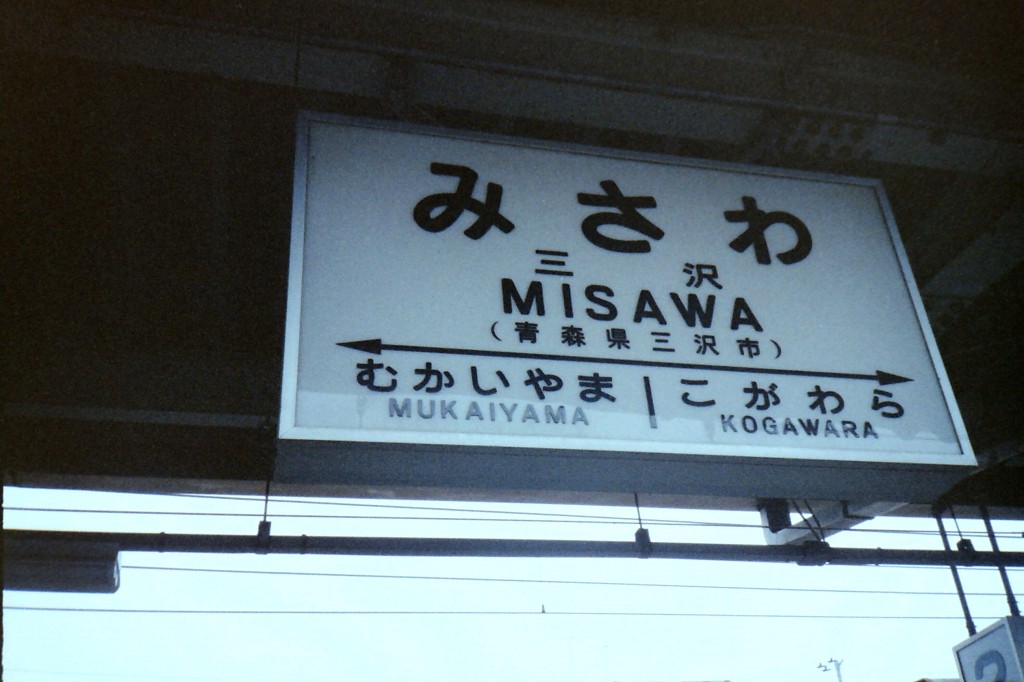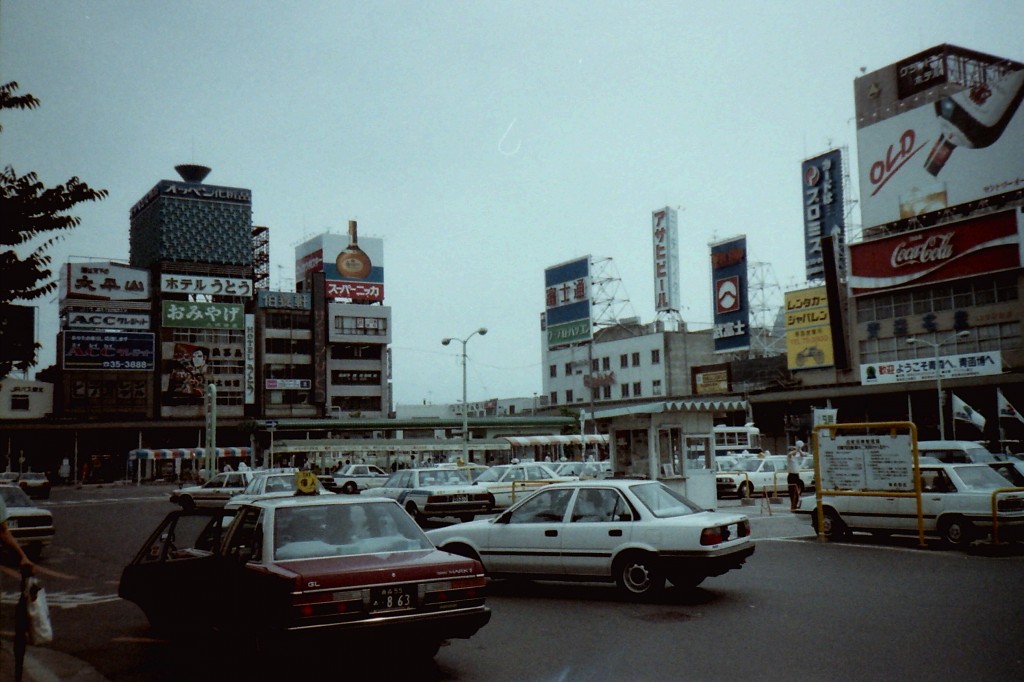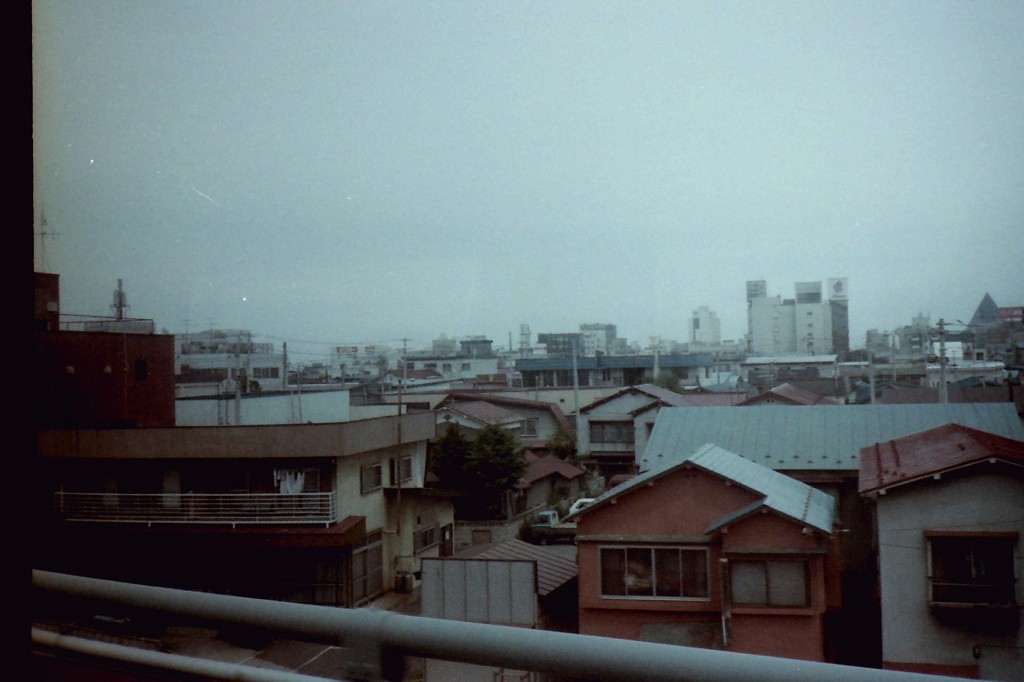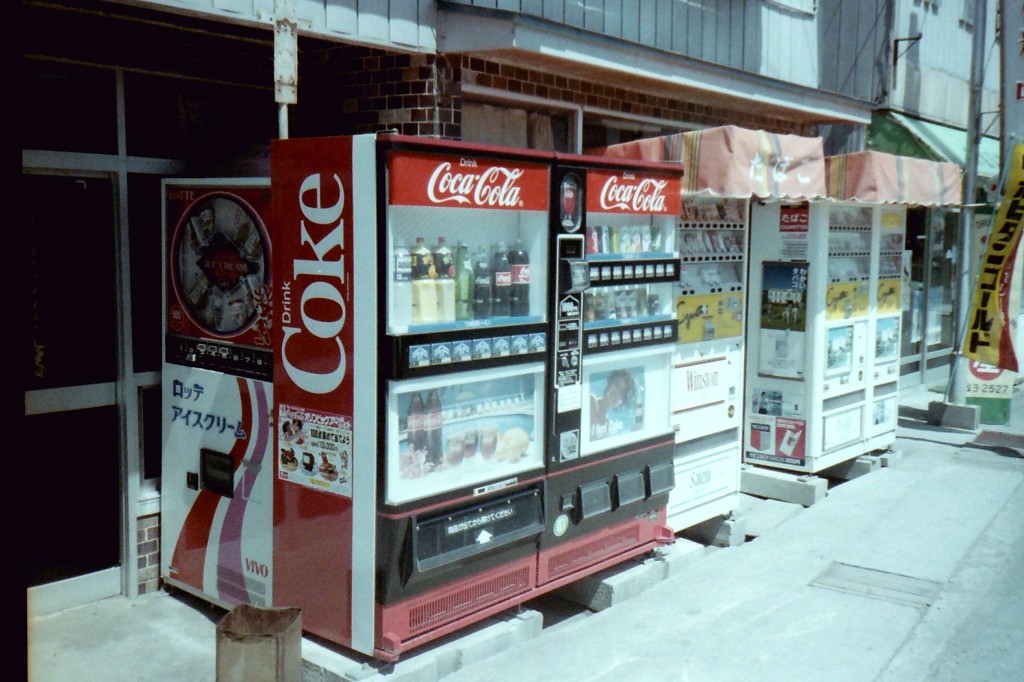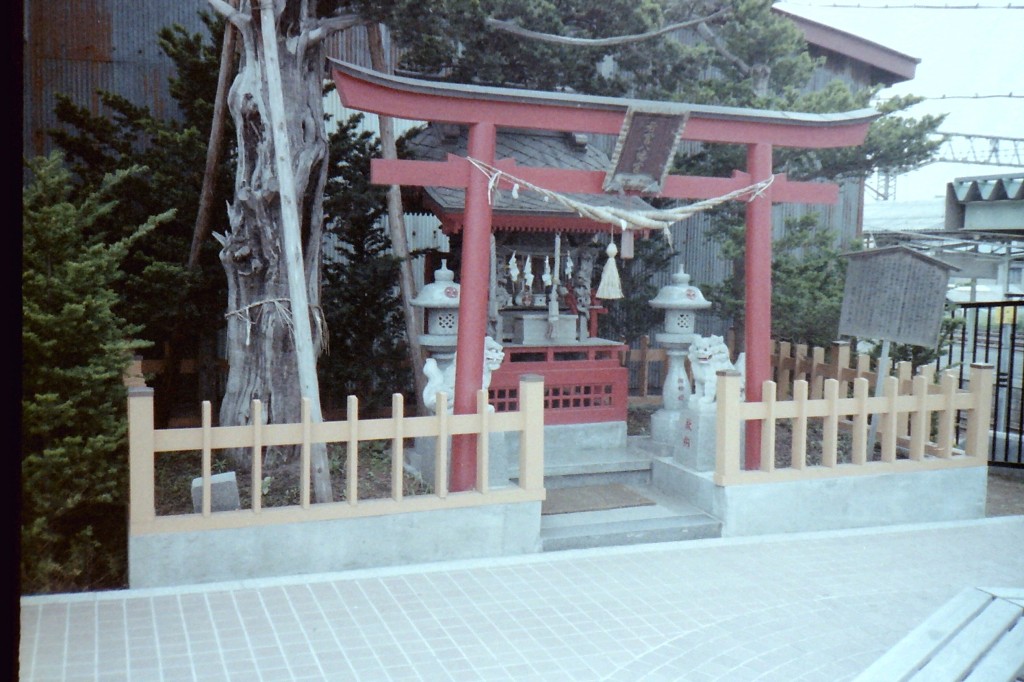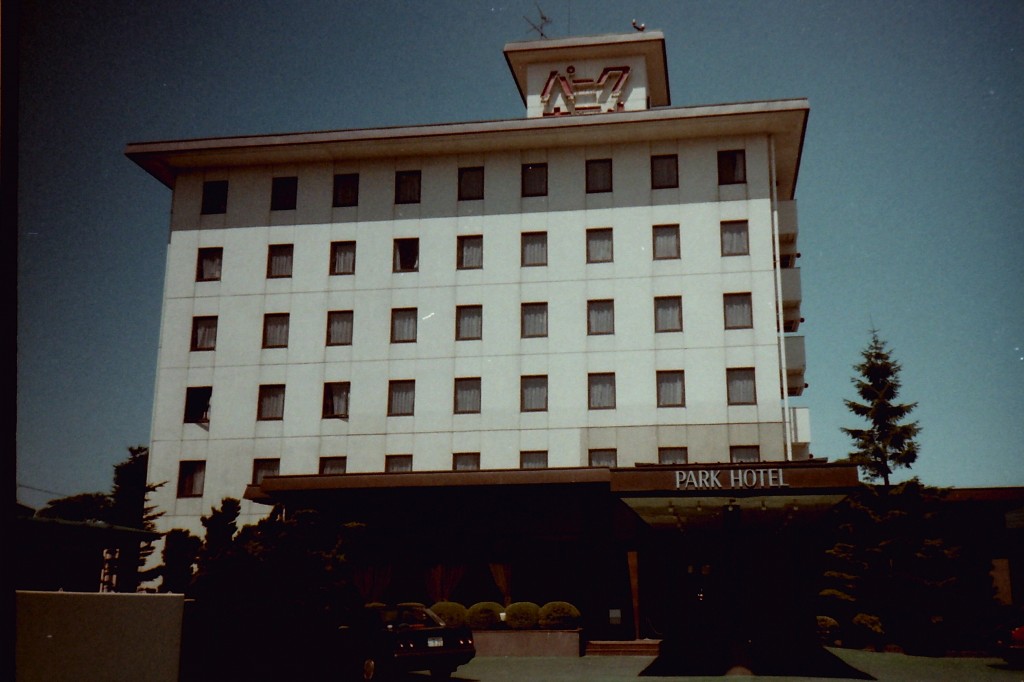And welcome to Misawa train station.  But a lot of water flowed under the bridge before I could arrive at this destination. First, when your plane lands at Narita International Airport in Tokyo (and go business class, if at all possible — it’s worth the difference in cost), you can’t just change planes and continue on to your next stop. No, if you’re going to Misawa, which is on the northern tip of the main island of Honshu, you will probably have to spend the night in Tokyo.
But I’m just getting started. Before you can spend the night, you have to take a bus to your hotel, which will probably be near Haneda airport. Haneda serves internal destinations for Japan. According to Google maps, it is an hour and forty-one minutes to Haneda. By bus, however, it’s at least two hours, and that’s when it’s not rush hour. Those busses don’t come equipped with bathrooms, and they don’t make stops, either, so you have to be a boy scout and be prepared.
Here’s a view near Haneda:
The next morning, my flight was delayed by fog at Misawa. When the announcement to board finally came I didn’t hear it, but fortunately the coworker I was travelling with did. We almost missed the flight, though, because our way was blocked by dozens of uniformed little Japanese schoolgirls who didn’t want to budge to let us through.Â
The flight was short, but like Joshua marching around Jericho, the plane circled Misawa seven times. A flight attendant fired up the intercom and explained the situation in Japanese for two solid minutes. Then, in English, I heard her say that we couldn’t land at Misawa; rather, we’d be going on to Aomori Airport, and “… so sorry, hope you have better luck next time.”
Now, how am supposed to get to Misawa? My instructions did not include a detour to Aomori. I supposed I’d have to take a train, but how? Everything is in Japanese, and few people spoke English (despite assurances from naive Americans who had never been to Japan). Things were especially difficult back in 1988 — moreso than today — and it got really difficult once you travelled outside of Tokyo. Misawa is in farming country. I had been trying to learn Japanese for quite some time, and I did really well, but it just wasn’t enough. Did I mention nihongo wa totemo muzukashii desu ne? Japanese is very difficult.
When I got off the plane, they handed me some cash, both paper and coins. It was hardly enough to compensate me for my trouble, but I had read in a book that it was unwise to be asked to be treated the same way as the Japanese in such matters. If you do, then it opens up a whole Pandora’s Box of new responsibilities, such as having to speak and understand Japanese and to eat things that aren’t quite dead yet. I made my way outside where I caught a bus to the train station. When I asked about getting a ticket to Misawa, lo and behold, the price of the ticket was EXACTLY the amount of yen I had been handed at the airport. Now the trick was to continually look out the window of the train for the station sign for Misawa, which you saw at the beginning of this post.
Here’s a view from the train:
There are a lot of helpful things in Japan conveniently located to meet your needs — in addition to people in airports handing you money. For instance, there are vending machines everywhere, just sitting out on the public sidewalks, serving everything from cigarettes to beer, wine, and bottles of hard liquor. Some will even have both hot and cold drinks. I never figured out the proper way to hold a steel can of hot tea or coffee without burning my fingers, however, so I always carried a handkerchief to use as a hotpad. Check out these machines, where you can get ice cream, soft drinks, fruit juice, isotonic drinks (likely including one called “Pocari Sweat”), and plenty of government-approved cigarettes.
And don’t forget those religious needs–you might need to give thanks that you made it to your destination in once piece. Many of the people in the Aomori area in 1988 were still bitter about the war, as that area was heavily bombed in WWII, and most of the people on the train made it perfectly clear they weren’t interested in communicating with us gaijin, i.e., foreign barbarians. There were plenty of Yakuza in the area, too, and I never knew when I was going to run into a gurantai (hoodlum) missing a finger he had presented to his oyabun (boss) in penance. Yes, Virginia, that’s real — not just in the movies.  Here’s a public shrine.
Home at last–until I get a place to rent. Here’s the Misawa Park Hotel. I was on the sixth floor, if memory serves me. And no, it wasn’t one of those pocket hotels, but it was a bit cramped, nonetheless. Like most European hotels, you had to leave your key at the front desk.

